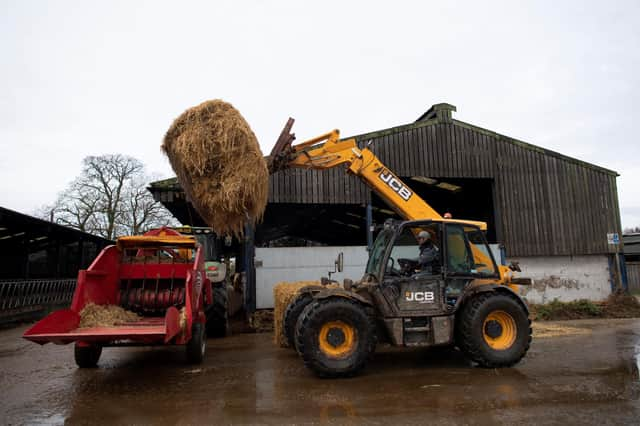Farmers must give themselves a break - Brian Henderson


The reports added some meat to the bones of the findings released a month or so ago by the rural charity RABI which indicated that more than a third of those in the farming community were probably clinically depressed, while more than half of the women interviewed in the 15,0000-strong survey experienced mild, moderate or severe anxiety.
That survey also found that it tended to be a combination of factors which got on top of people – with worries over regulation, compliance and inspections, Covid-19, bad/unpredictable weather, loss of subsides/future trade deals all adding to the angst.
Advertisement
Hide AdAdvertisement
Hide AdAnd while these statistics might have been gathered from south of the border, Scotland’s equivalent organisation, RSABI, said that the findings echoed what they saw in their own case work and the type of queries received from clients – as around 70 per cent of the charity’s work revolves around providing emotional and practical support.
“The finding about farmers having multiple causes of stress is something that we recognise in our work. It is often a combination of factors, for example bad weather on top of financial difficulty that cause people to seek our support,” said RSABI.
One of last week’s research papers though attempted to dig a bit deeper into the reasons for the high levels of stress.
And while some cynics in the sector might have suggested that the work was straight out of the University of the Bleedin’ Obvious, listing long hours, working alone and a feeling of being undervalued and disconnected from the wider public as being among the key factors which cause loneliness within the farming community, having anecdotal evidence backed by proper research never does any harm.
For, while the conclusions might have come as no surprise to those in the industry, the research carried out by the University of Exeter and national charity The Farming Community Network (FCN) provided hard evidence of the state of the sector’s mind – and highlighted the links to mental health problems such as depression and anxiety.
The study found that the long hours farmers worked trying to keep their business going left little time for socialising, relaxing, or spending time with their family – while other challenges included a lack of social opportunities, geographical isolation and declining business-related contact.
Poor rural broadband and transport connections were found to add to this sense of isolation, as well as a general feeling that the public undervalues the profession and had little understanding of the challenges involved in producing food and managing the countryside.
The research also provided a number of important recommendations for improving support to farmers, including continued investment in rural broadband, further education and outreach to help the public understand farming and its challenges.
Advertisement
Hide AdAdvertisement
Hide AdBut perhaps the most important was the call for a “normalisation” amongst farmers of actually taking some time off – away from the farm – in order to see the wider picture and put things into some sort of proper perspective.
As we all know, “hard work” is an accepted and valued part of what it means to be a farmer – and this can lead to pressures and expectations to put the nose closer to the grindstone and just work harder and longer when challenges arise.
“Taking a break from the farm or having a rest from work is not a waste of time. The truth is it’s one of the most productive things you can do,” said the report author.
A reluctance amongst those of us in the sector to talk about our worries, sometimes even to those closest to us often exacerbates the problem as well.
The researchers heard that farmers felt they were expected to be strong and resilient and that admitting they were struggling and needed help would be an admission of failure, of somehow not being a ‘good farmer’.
Another source of stress is at the current time is the fact that farm policy is undergoing a monumental change in direction with more emphasis being placed on environmental and climate change goals alongside food production – and with that will come a paradigm shift in what it means to be a good farmer.
So perhaps the time is right for a similarly seismic change in the industry’s mindset of what constitutes a good farmer.
A message from the Editor
Thank you for reading this article. We're more reliant on your support than ever as the shift in consumer habits brought about by coronavirus impacts our advertisers. If you haven't already, please consider supporting our trusted, fact-checked journalism by taking out a digital subscription.
Comments
Want to join the conversation? Please or to comment on this article.
